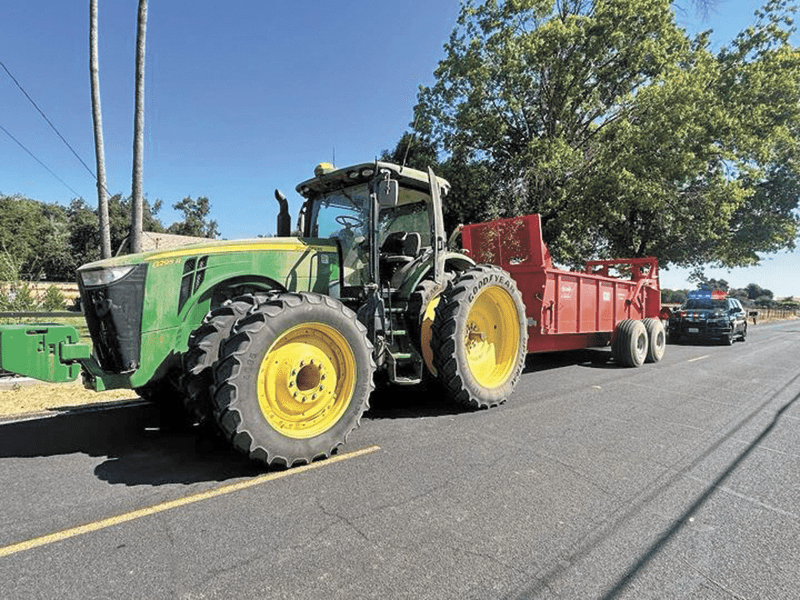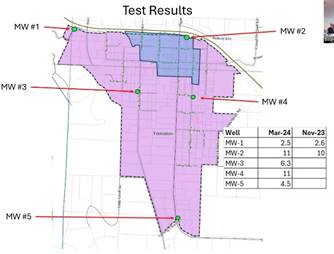As California grapples with crime, much of the media’s attention has focused on high-profile smash-and-grab incidents in places such as San Francisco and Los Angeles. While these stories may dominate the headlines, an equally concerning trend is unfolding in the state’s agricultural and rural communities.
Unfortunately, farmers and ranchers are increasingly finding themselves in the crosshairs of criminals. With valuable equipment and commodities on site, agricultural businesses are attractive targets for theft, which often has costly consequences for farmers and ranchers —something I am all too familiar with as district attorney in Fresno County.
Rural areas have always presented unique challenges for law enforcement. The vast expanses and remote locations that characterize California’s agricultural heartland make it difficult for law enforcement to maintain a strong presence. A local sheriff described the challenge in a recent warning: “Crime is not confined to the cities. It is a growing problem in rural areas.”

One recent example underscores just how costly the problem is: Thieves made off with 200 beehives near Fresno valued at approximately $40,000 and had stolen hives worth about $150,000 from other businesses in the area. Unfortunately, these thefts are not isolated events but a broader trend. The lack of accountability in the law is encouraging this behavior among the criminal element.
Cargo theft is another major challenge. California is ranked as the top state for losses, and cargo theft costs nationwide are estimated at $15 billion to $30 billion annually. For California’s agricultural sector, these thefts can be devastating. One San Joaquin Valley pistachio company lost $170,000 in products in an incident, while another saw 40 loads of nuts stolen valued at several million dollars.
In response to this growing threat, law enforcement agencies across California ramped up efforts with dedicated agricultural crime prevention programs. Public-private partnerships such as the California Rural Crime Prevention Task Force was created to coordinate across communities and provide training. While these efforts are vital, they are not enough on their own.
To truly address rural crime, changes in state law are needed that a popular ballot measure, Proposition 36, aims to deliver.
The initiative is set for a statewide vote this November and offers commonsense reforms designed to crack down on theft and strengthen the tools available to law enforcement. Proposition 36 has garnered bipartisan support from mayors, sheriffs and district attorneys hailing from large and small agricultural counties across the state. It includes provisions that will be beneficial to farmers and ranchers who are the victims of rural crime.
One of the most significant aspects of the initiative is its focus on increasing accountability for high-value thefts. California does not permit additional jail time for thieves who steal more than $50,000 worth of property. With agricultural thefts sometimes extending into the millions, this is a glaring hole in current law. Proposition 36 seeks to change that by allowing judges to impose additional penalties depending on the value of the stolen property — ranging from $50,000 to more than $3 million. This new provision is crucial to deter criminals who target high-value agricultural equipment and commodities.
The ballot measure also addresses the issue of coordinated thefts, a tactic often employed by organized crime groups. It would allow judges to add one, two, or three years to the sentence of any offender who steals property while acting in concert with at least two other individuals. This provision is particularly relevant for agricultural thefts in which multiple perpetrators often work together to steal large quantities of goods or equipment.
Beyond protecting the agriculture industry directly, Proposition 36 offers broader benefits that will help retailers and other businesses that purchase products from farmers and ranchers.
California has a notorious loophole that allows repeat offenders to nearly avoid any consequences by stealing less than $950. Proposition 36 fixes this problem by permitting the cumulative value of stolen property from multiple thefts to be combined together, allowing for felony charges for the career thieves who exploit this legal gap.
The measure will also allow prosecutors the authority to file felony charges against repeat offenders with two prior misdemeanor theft convictions. It includes provisions to include stiffer penalties for fentanyl sales and trafficking — issues that, unfortunately, have not spared rural areas.
Proposition 36 will be 2024’s most important California ballot measure.
It is the most relevant piece of legislation we have seen in more than a decade that would start to swing the pendulum of overly excessive criminal justice reform back to the center and demand responsibility and accountability in the law. It would offer real solutions for reducing rural crime and protecting California’s farmers and ranchers. Please join me in voting yes on Proposition 36.
Lisa A. Smittcamp has served as Fresno County district attorney since first being elected in 2014. She may be contacted at lsmittcamp@fresnocountyca.gov. This commentary is courtesy of agalert.com.
Feature image: Valuable farm equipment is a target for criminals. On Sept. 1, authorities said deputies and agricultural detectives in San Joaquin County recovered this stolen tractor and returned it to the owner. Photo Courtesy of California Rural Crime Prevention Task Force.





